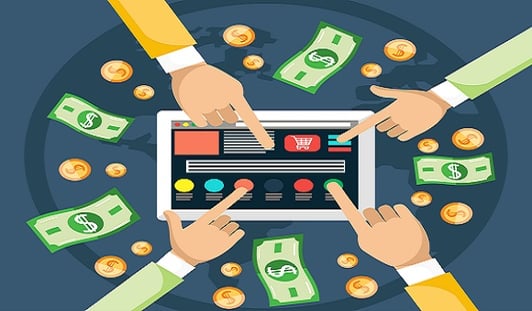
Almost every widely adopted technology owes its success to the fact that it was once perceived as new and exciting. But digital marketing is different. There’s a lot more to the success of blogging and social selling than just the hype that follows innovation. The game-changing technologies of digital marketing have had the impact they’ve had not simply because they were new, but because they arrived at a time when we needed a new way of selling.
Message relevance is everything
Much has been said about outbound and inbound channels and how digital media trumps traditional channels because digital attracts its audiences with content they want to consume. But, this is only a half truth. Yes, consumers don’t want to be interrupted, but that doesn’t mean that they can’t be engaged with ‘pushed’ messages (the survival and success of outbound channels attests to the effectiveness of such messages).
If we look more closely at what kinds of media and messages fail and succeed to engage their audiences, we realise that success depends not so much on the medium as it does on the message. Relevant messages are given attention regardless of whether a media consumer is actively looking for them or not, while irrelevant messages will always be ignored.
Digital channels combine message relevance with reach
The advantage of digital channels is twofold: they make it easier to determine what kinds of messages are considered relevant, and they enable marketers to publish a large amount of content at relatively low cost – thus enabling greater reach and engagement. When properly combined, these messages and content create digital paths which guide users to a website.
But, attraction is only one function of digital marketing channels. A more holistic look at digital marketing and its uses reveals the following ways in which digital channels can help marketers meet campaign objectives:
provide more information on your buyerscreate effective buyer journeys
engage your customers on a deeper level
It’s all about the buyer
One of digital marketing’s biggest advantages is that it uses media that empowers the buyer. However, the technology used in a successful digital marketing campaign can account for only part of its success. To be found among the many other brands using the same channels, marketers need to understand what their buyers are looking for. And most of the time these people are not actively looking for the brand’s product.
Luckily, digital platforms offer many ways to discover an audience’s concerns and interests – the subjects of their online searches. Forms, online surveys, heatmaps, performance analytics, and social monitoring can all help marketers to better understand their customers. When used to their fullest, these powerful tools can help savvy marketers develop lifelike buyer profiles.
Lifelike profiles include a path to purchase
With these profiles, a marketer can then identify the pain points needed to attract new leads. But digital marketing doesn’t end here. To produce workflows that result in sales, marketers have to take into account their buyers’ path to purchase. Without this knowledge, it doesn’t matter what kind of technological wizardry you employ; if you fail to understand your buyers thought processes, you’ll fail to engage them in a way that prompts sales.
So, while search engine-optimised websites and marketing automation software are essential parts of a digital marketing campaign, technology is only one of three essential elements in a digital marketing campaign:
TechnologyAn understanding of buyer behaviour
A strategy
It’s clear then that there is a very human element to digital marketing, one that maybe hasn’t received as much focus as it should. To make the most of one’s digital marketing channels, marketers have to pay as much attention to their buyer profiles and strategies as they do to their choice and use of channel. If, however, you don’t have the time or resources needed to optimise your digital or inbound marketing strategies, you should consider outsourcing part of your digital campaign. At GCL Direct we can offer such a solution either as a stand alone service or as part of a larger, more holistic solution. To learn more about using digital marketing to capture leads, download our inbound marketing guide.
Image Credit:hitsearchlimited.com







